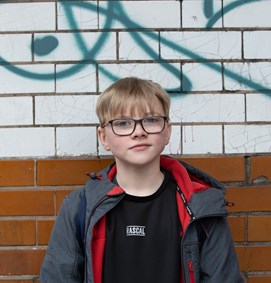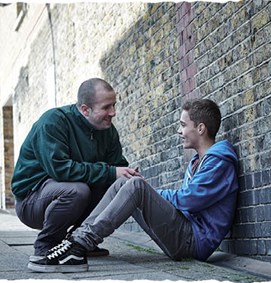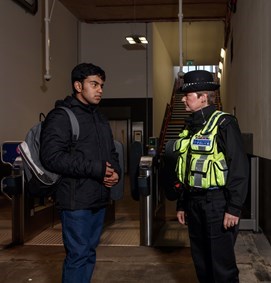A month in news: 5 stories on children’s rights, wellbeing and challenges from the end of the year
- Date: 31 December 2023
- In: UK
Following the lack of investment for local authorities in the Autumn Statement, the Chancellor is being urged to provide emergency funding to protect vital services that children rely on every day.
Research shows that spending on children’s social care has spiralled in recent years against a backdrop of increasing numbers of young people being looked after by councils. This has led to a vicious cycle, where the rising cost of care placements means that early intervention services for families are not prioritised and there is a greater demand for crisis support.

While government funding for preventative services will help to ensure more families can remain safely together, our early intervention work and collaboration with social services provides a vital support network for children, parents and carers to reduce escalating risk.
According to recent research, the Home Office’s approach to tackling county lines is based on ‘racialised tropes’ that criminalise young Black people. The study, published by the Institute of Race Relations (IRR), says that young Black men and children are more likely to be stigmatised by policing strategy towards drug operations and are six times more likely to be included in county lines safeguarding classifications than any other ethnicity.
Through our Safeguarding Action Groups, we’re training people who work in and around stations to be able to spot the signs of risk and encourage them to view children’s involvement in county lines activity through the lens of vulnerability and exploitation, not criminality.
Earlier this month, we were invited to speak at an All-Party Parliamentary Group for a roundtable on street-connected children and law enforcement. This was an important opportunity to discuss how we can help to improve relationships between vulnerable children and police and share the impact of our work with members of government and other NGOs. To ensure young people with ‘lived experience’ are at the centre of this dialogue, our Youth Ambassadors are encouraged to help shape our programmes and input on how services can be more responsive to their needs.
Around six children in every classroom need mental health support, but many are struggling to access services, it was reported in November. The Children and Young People’s Mental Health Coalition has said that the lasting effects of the pandemic, societal inequalities and inaction from the UK government means that demand for mental health support now outweighs services available.

As well as raising awareness of the different types of vulnerabilities on the rail network, our Youth Practitioners deliver bespoke care plans based on the young person’s needs. Support sessions can include topics such as managing emotional wellbeing and building self-esteem, as well as facilitating access to family counselling.
In the last year, 96% of young people we worked with experienced improved wellbeing and 95% reported better relationships with family or key adults.
The UK’s leading paediatrician has warned that the climate crisis poses an ‘existential risk’ to the health and wellbeing of all children. Dr Camilla Kingdon, the president of the Royal College of Paediatrics and Child Health (RCPCH), said that the climate emergency is already having a significant impact on millions of children and criticised the UK government’s lack of commitment to net zero policies.
The impact of global warming extends far beyond the UK, with children living in developing countries bearing the greatest burden from climate catastrophes, including forced migration, poverty, hunger and health problems.
A recently published white paper on international development outlined a positive agenda to refocus UK aid on lower-income countries to accelerate efforts to achieve the SDGs by 2030 and secure a new global climate finance goal next year. Yet, with the UK aid budget remaining at 0.5% and no plans for it to return to 0.7% any time soon, it raises the question of how these commitments will be funded.
According to an inspectorate, the Metropolitan Police is not responding adequately when vulnerable children go missing. His Majesty’s Inspectorate of Constabulary and Fire & Rescue Services found that officers are often too slow to locate missing children and do not always carry out a proper investigation into why they disappeared once they are home. It also said the police force is not effectively investigating cases where a child is subjected to criminal or sexual exploitation.

While missing from home or care is one of our most common reasons for referral, there are often many other risk factors within a young person’s life, which could include concerns around criminal or sexual exploitation.
Our safeguarding approach means that we can intervene early, and because our support is not time-bound, we can take our time to explore young people’s complex needs. This often involves working with parents, carers, local authorities, care homes and youth groups to create a robust support network around them and reduce risk.